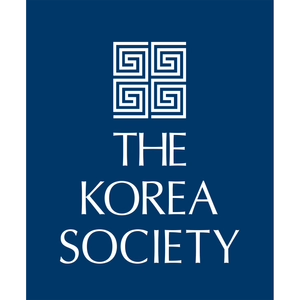
How to Build Exceptional Professional Relationships
04/01/25 • 13 min
Building exceptional professional relationships, according to Dr. Daniel Dahan, is not merely a strategy but a reflection of core human values like kindness, generosity, sensitivity, trust, and care. True professional success is intertwined with the connections we cultivate, making relationships pivotal in our journey. The article emphasizes that trust, built through active listening and genuine concern, is essential. Instead of trying to impress, expressing sincerity and empathy helps build bridges.
A key element is the power of reciprocal trust, where reliability and integrity lead to mutual confidence. It's crucial to align with individuals who share your values and goals, as positive associations boost morale and reputation, while negative ones can hinder progress. Exceptional relationships are also reciprocal, built on a genuine willingness to support each other, fostering an environment of mutual benefit. Adhering to integrity and moral principles is non-negotiable, attracting like-minded individuals. Approaching relationships with a service-oriented mindset, focused on helping others, creates a positive and sustainable impact. Ultimately, prioritizing these principles enhances our professional lives and contributes to a more ethical work environment.
Building exceptional professional relationships, according to Dr. Daniel Dahan, is not merely a strategy but a reflection of core human values like kindness, generosity, sensitivity, trust, and care. True professional success is intertwined with the connections we cultivate, making relationships pivotal in our journey. The article emphasizes that trust, built through active listening and genuine concern, is essential. Instead of trying to impress, expressing sincerity and empathy helps build bridges.
A key element is the power of reciprocal trust, where reliability and integrity lead to mutual confidence. It's crucial to align with individuals who share your values and goals, as positive associations boost morale and reputation, while negative ones can hinder progress. Exceptional relationships are also reciprocal, built on a genuine willingness to support each other, fostering an environment of mutual benefit. Adhering to integrity and moral principles is non-negotiable, attracting like-minded individuals. Approaching relationships with a service-oriented mindset, focused on helping others, creates a positive and sustainable impact. Ultimately, prioritizing these principles enhances our professional lives and contributes to a more ethical work environment.
Previous Episode

When to Consider Orthotics: Research-Based Recommendations
Foot orthotics may be necessary when patients experience back problems worsened by activity, recurrent ankle sprains, or have a family history of foot issues. Athletes with lower extremity stress fractures, shin splints, or hamstring strains might also benefit. Examination findings like postural imbalances, gait asymmetry, or foot deformities can indicate a need for orthotics. X-ray findings, such as scoliosis or uneven sacral base, and a lack of response to conservative treatments are additional signs. Ultimately, orthotics can improve biomechanics, reduce stress on joints, and support musculoskeletal health. They can be especially helpful for recreationally active and elderly patients.
Full article:
https://dynamicchiropractic.com/article/55064-when-to-consider-orthotics-research-based-recommendations
Have feedback on this episode?
Next Episode

More China Is Broken in Health Care by Trump Administration
The Trump administration's new appointments at the Department of Health and Human Services (HHS) and the National Institutes of Health (NIH) are generating significant interest, particularly for the chiropractic profession. The appointment of Robert Kennedy Jr. as HHS Secretary and Dr. Jay Bhattacharya as the new NIH Director signals a potential shift in healthcare perspectives. Dr. Bhattacharya, known for co-authoring the controversial Great Barrington Declaration which advocated for focused protection during the COVID-19 pandemic, has also questioned the NIH's funding priorities, suggesting a need to support more "edge science" rather than solely building on established ideas. This new leadership could foster a more favorable environment for chiropractic research funding through the National Center for Complementary and Integrative Health Care (NCCIHC). The article delves into the NIH's grant approval process and the potential influence of the new director on advisory councils. The author recounts a past experience of attempting to diversify appointments to HHS advisory committees, highlighting the resistance from the scientific community. With these changes, the author suggests that the chiropractic profession should actively pursue consumer appointments on NIH institute councils to broaden their opportunities.
If you like this episode you’ll love
Episode Comments
Generate a badge
Get a badge for your website that links back to this episode
<a href="https://goodpods.com/podcasts/dynamic-chiropractic-662501/how-to-build-exceptional-professional-relationships-88572004"> <img src="https://storage.googleapis.com/goodpods-images-bucket/badges/generic-badge-1.svg" alt="listen to how to build exceptional professional relationships on goodpods" style="width: 225px" /> </a>
Copy




